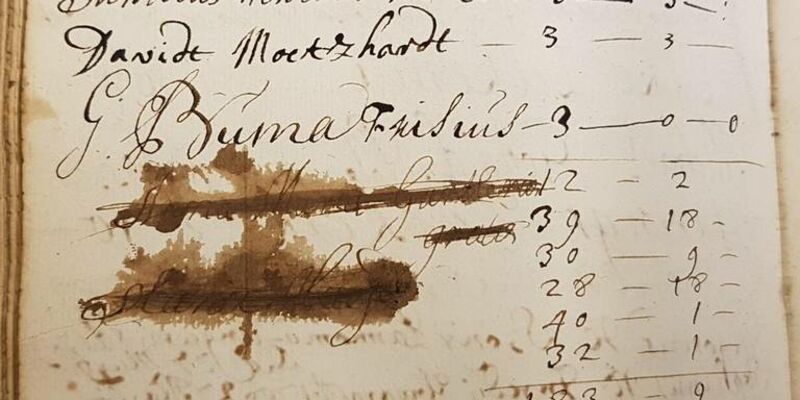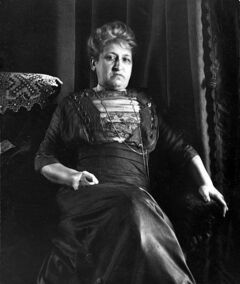
- Student
- 15/01/2019
Manon Borst, director of Museum Martena in Franeker, was “dumbfounded” when she saw the names of two girls under student numbers 10.601 and 10.602 registered in 1708 in a book about the Album Studiosorum (student register) of the University of Franeker. “That book dates from 1968 and is about as interesting as a phone directory. Usually, you’re looking for specific names, but in this case, I was just leafing through the book.”
Notable
The discovery is notable because it is assumed that Aletta Jacobs was the first woman to be officially admitted to a Dutch university in 1871. Of course, two centuries earlier, the multitalented Anna Maria van Schurman had already attended lectures at the University of Utrecht, but she was never allowed to register and sat hidden behind a curtain so as not to distract the male students.
The names of the Gürtler sisters are clearly legible, despite the crossing-out. The women, who are registered under their Latinized family name Gurtlerus, were the daughters of Nikolaus Gürtler, a theology professor at the same university. It remains unclear whether they actually studied at the university. Borst: “So far, we haven’t been able to find any other sources that mention them.”
Guesswork
For now, the reason for the crossing-out remains guesswork. “It could be that the person who registered the women immediately realized his ‘mistake’ and crossed-out their names. But it is also possible that this was done later,” says the museum director. “After research, we will be able to put a date on the ink, that should tell us more.” Incidentally, crossing-out names in the register was no exception. “There are more examples, for instance when students got kicked out of university for dishonorable behavior.”
Borst finds it “remarkable” that the names of the women were not noticed by the book’s two compilers, but she can’t ask them about it anymore because they passed away. She continues her search for the sisters.

Discussion